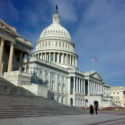The House of Representatives passed HR8393, the Puerto Rico Status Act, giving Puerto Rico voters the opportunity to choose from among the three political status options which are viable under the U.S. Constitution. Before the bill came to the floor of the House for debate, it went to the Rules Committee of the House.
What is the Rules Committee?
The House Committee on Rules is also known as “the Speaker’s committee,” because it sets the rules for debates on the floor of the Houser of Representatives. As their website explains, it is “the mechanism that the Speaker uses to maintain control of the House Floor.
Since 1789, this committee has been in charge of which legislation goes to the floor of the House for debate, the amount of time allowed for a debate, whether or not there will be amendments, and all the other details about how the legislation will be considered. They can also change the law, rewriting parts or even the entire law.
“The Committee has the authority to do virtually anything during the course of consideration of a measure,” their website explains. “In essence, so long as a majority of the House is willing to vote for a special rule, there is little that the Rules Committee cannot do.”
What the Rules Committee said
The Rules Committee made a plan to bring HR8393 to the floor of the House of Representatives for debate. They said there would be an hour of debate and that no amendments could be considered, and also that no points of order could be considered.
Instead of allowing amendments, they made some specific changes to the law before sending it to the floor. Then they sent the updated law to Congress.
The document that they sent began in this way: “Resolved, That upon adoption of this resolution it shall be in order to consider in the House the bill (H.R. 8393) to enable the people of Puerto Rico to choose a permanent, nonterritorial, fully self-governing political status for Puerto Rico and to provide for a transition to and the implementation of that permanent, nonterritorial, fully self-governing political status, and for other purposes.”
The phrase “and for other purposes” is added to almost all bills. The main part of that statement, however, is very powerful. The Rules Committee, by choosing to say that Puerto Rico should have a “permanent, nonterritorial, fully self-governing political status” is acknowledging that Puerto Rico’s current status is not permanent.
This is true. An unincorporated territory can always become a state or an independent nation. Puerto Rico is currently a territory, but the statement clearly states that the permanent status should not be that of a territory.
They were also saying that Puerto Rico’s permanent status should be fully self-governing, As a state or a nation, Puerto Rico will have a level of sovereignty that a territory does not have.
Changes made
Most of the changes made were small: “Title” was hanged to “title,” for example. The most significant changes were made in the information about citizenship under the Free Association option:
This section is now “TRANSITION PERIOD.—During the implementation of the first Articles of Free Association, an individual born in Puerto Rico to at least one parent who is a citizen of the United States shall be a United States citizen at birth under section 301(c) of the Immigration and Nationality Act (8 U.S.C. 1401(c)) if otherwise eligible.”
The corr3espinding section under Independence says, “(c) CITIZENSHIP AT BIRTH AFTER INDEPENDENCE.—An individual born in Puerto Rico after the effective date of independence to at least one parent who became a United States citizen under section 302 of the Immigration and Nationality Act (8 U.S.C. 1402) is not a United States citizen at birth under subsections (c), (d), or (g) of section 301 of the Immigration and Nationality Act (8 U.S.C. 1401(c), (d) or (g)).”
11 amendments were proposed during the meeting of the Rules Committee. Rep. StacyPlaskett asked to include a binding referendum for her constituency in the Virgin Islands. Rep., Bruce Westerman suggested removing the block grants for an independent or freely associated Puerto Rico and the requirements for the constitutions under both those options. Tom McClintock wanted to require a 2/3 vote rather than the simple majority required by current law. Rep. Hice wanted to remove the work and travel freedoms given by the bill, if Puerto Rico became an independent or associated nation,
None of these amendments passed, so they were not included in the document.
What next?
In order to become a law, a bill must pass the House (which HR8393 has already done) and the Senate, and then be signed by the president.
If HR8393 does not get to the Senate before the end of the year, the bill can be reintroduced in the next Congress. In fact, passage of HR8393 in the House changes the conversation completely. Many options become available because of this precedent. The decisions made by the House — and by the Rules Committee — will have far-reaching effects in the future.









No responses yet